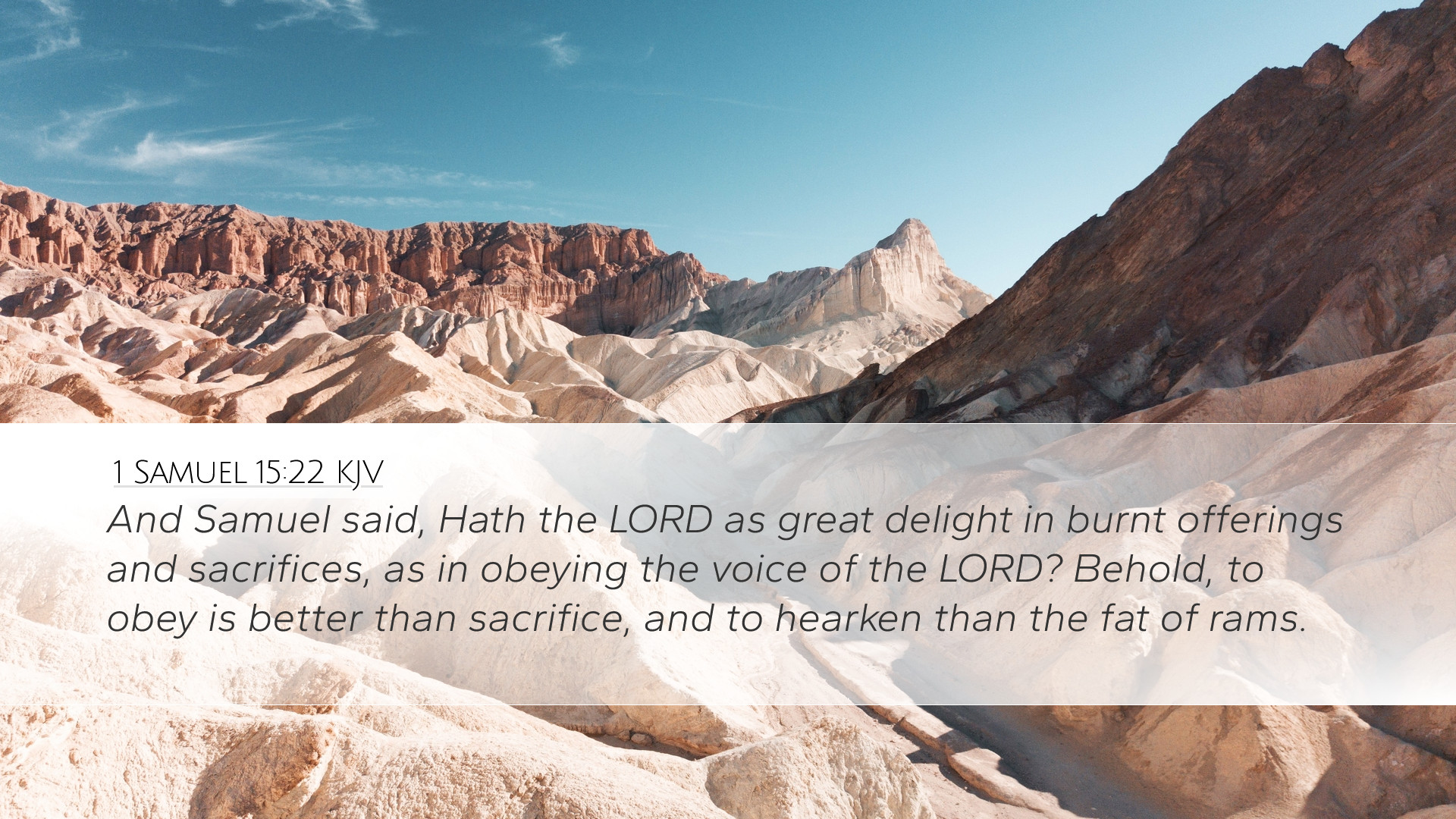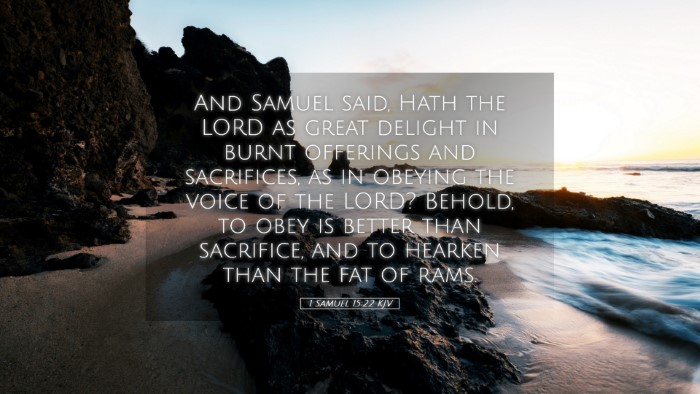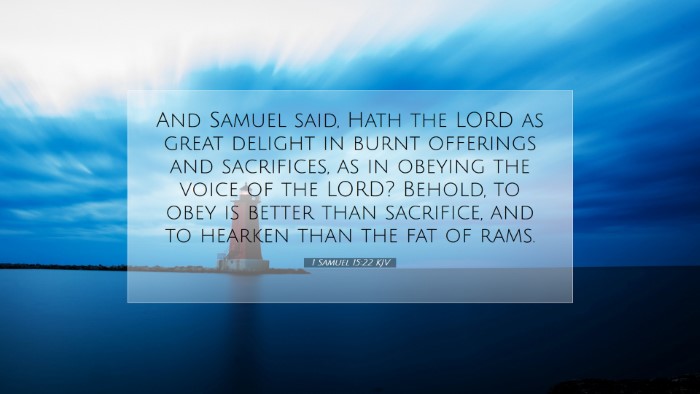Commentary on 1 Samuel 15:22
1 Samuel 15:22 states, "And Samuel said, Hath the LORD as great delight in burnt offerings and sacrifices, as in obeying the voice of the LORD? Behold, to obey is better than sacrifice, and to hearken than the fat of rams."
Contextual Background
This verse is situated within the narrative of Saul’s disobedience to God’s command regarding the Amalekites. God instructed Saul to utterly destroy them, but Saul instead spared King Agag and the best of the livestock, believing that he could offer these as sacrifices to God. Samuel comes to confront Saul, and it is in this context that he delivers this poignant statement about the nature of obedience versus sacrifice.
Theological Significance
The declaration by Samuel underscores a profound theological truth: God's desire is for genuine obedience rather than ritualistic acts of worship. This point resonates throughout Scripture, emphasizing that God values the heart and intent behind actions more than the actions themselves.
Insights from Matthew Henry
Matthew Henry, in his commentary, highlights that this verse serves as a critical reminder of the supremacy of obedience to God’s commands over external religious observances. He states:
"It is not enough to offer an external obedience, or to perform ceremonies; God requires the heart to be engaged in His service. True religion is a matter of the heart, and God looks for compliance with His commands over ritual adherence."
Insights from Albert Barnes
Albert Barnes elaborates on the implications of this verse for understanding God's expectations. He asserts:
"The Lord desires true acknowledgment of His authority, which manifests itself not merely in sacrifices but in the daily conduct and life choices of His people. The essence of the covenant relationship is compliance with God's will."
Barnes further notes that Saul’s failure was not simply an act of rebellion but a distortion of worship that prioritized personal judgment over divine instruction.
Insights from Adam Clarke
Adam Clarke brings an enlightening perspective, emphasizing that to truly obey God encompasses a fullness of heart and sincerity:
"Obedience to God’s word is the foundation of true worship. Sacrifices should spring from a life of obedience, not replace it. They are meaningless if proffered in the absence of a contrite heart and a commitment to follow God's ways."
Clarke also reminds readers of the relational nature of God’s commandments, viewing them as guides to living a life that is in step with divine purpose.
Practical Applications
For pastors, theologians, and students, the implications of 1 Samuel 15:22 are manifold:
- Prioritize Spiritual Integrity: In ministry and personal faith, the emphasis should be on living out God's commands authentically rather than relying solely on ritual practices.
- Assess Our Worship: Reflect on whether worship practices stem from obedient hearts or merely from tradition. Are sacrifices made to satisfy a checklist or as genuine expressions of faith?
- Cultivate Obedience: Develop a culture of obedience in church communities where adherence to God's instructions is celebrated as an act of worship.
- Teach True Worship: Educate congregations on the importance of internal attitude towards God, encouraging them to seek a relationship grounded in obedience rather than superficial acts.
Conclusion
1 Samuel 15:22 serves as a clarion call for all believers to examine the authenticity of their relationship with God. Obedience, as highlighted in Scripture through the insights of Matthew Henry, Albert Barnes, and Adam Clarke, is not merely about following commands but living in a way that reflects a heart aligned with God’s will. Pastors and theologians are tasked with guiding their congregations to understand that true worship stems from a posture of obedience and reverence toward the Creator.


